Meet our Investigators: Meenakshi Rao, MD, PhD
How long have you been a member of the IDDRC? Which organization and department do you work for?
I have been a member of the IDDRC since 2020. I’m an investigator in the Division of Gastroenterology, Hepatology and Nutrition at Boston Children’s Hospital, and an affiliate member of the F.M. Kirby Neurobiology Center.
What is your main research focus?
My lab is focused on understanding the cells and mechanisms used by the nervous system of the gut (called the enteric nervous system; ENS) to regulate digestive and neurological health. Two specific interests within this area are in uncovering the basis of some of the prominent sex differences in these disorders and delineating the functions of the non-neuronal cells in the ENS, enteric glia.
What led you to pursue research career and/or interest in IDD?
As a burgeoning physician-scientist entering graduate school I was fascinated by the inherent problem presented by developmental biology, how a simple collection of cells gives rise to complex structures, a problem that seemed particularly challenging in the nervous system. For my thesis work, I explored how retinoids, powerful signals generated from vitamin A in the diet, influenced the development and specification of motor neurons in the spinal cord. I was struck by how even brief periods of nutrient or other deprivation could have such lasting consequences for the nervous system. As I returned to the bedside to continue clinical training, I saw the impacts of these effects at the macro scale in the patients I was caring for, cementing my interest in pursuing Pediatric medicine and advancing the understanding of how the environment affects nervous system development and function.
Any comments on the services of a core/or particular equipment that advances your current research?
Two IDDRC cores that have been essential to my lab are the Cellular Imaging Core and the Mouse Gene Manipulation Core. The deep expertise of the core directors and staff in these facilities has enabled us to advance experiments that would not otherwise have been possible.
Are you interested in collaborating or offering any collaborative opportunities? If yes explain briefly.
I would be thrilled to collaborate with other IDDRC investigators. The enteric neurobiology community has often been somewhat apart from the rest of the neurobiology community, and I think that has been to the detriment of both. Almost every neurodevelopmental disorder involves some GI symptoms and almost every signaling molecule involved in brain development or function is also expressed in the ENS. I think there is a lot of shared biology and rigorously studying GI phenotypes in basic and clinical studies of developmental disorders would be highly valuable.
Something fun/personal/ Interesting tidbit about you: favorite place to travel, pet, hobby, talent, funny story.
I don’t have any musical or athletic talents to speak of, but I’m an avid reader and I have always loved words and literature. At the risk of dating myself, I will reveal that as a teenager I tried out for “Wheel of Fortune” and almost made it onto the show!



